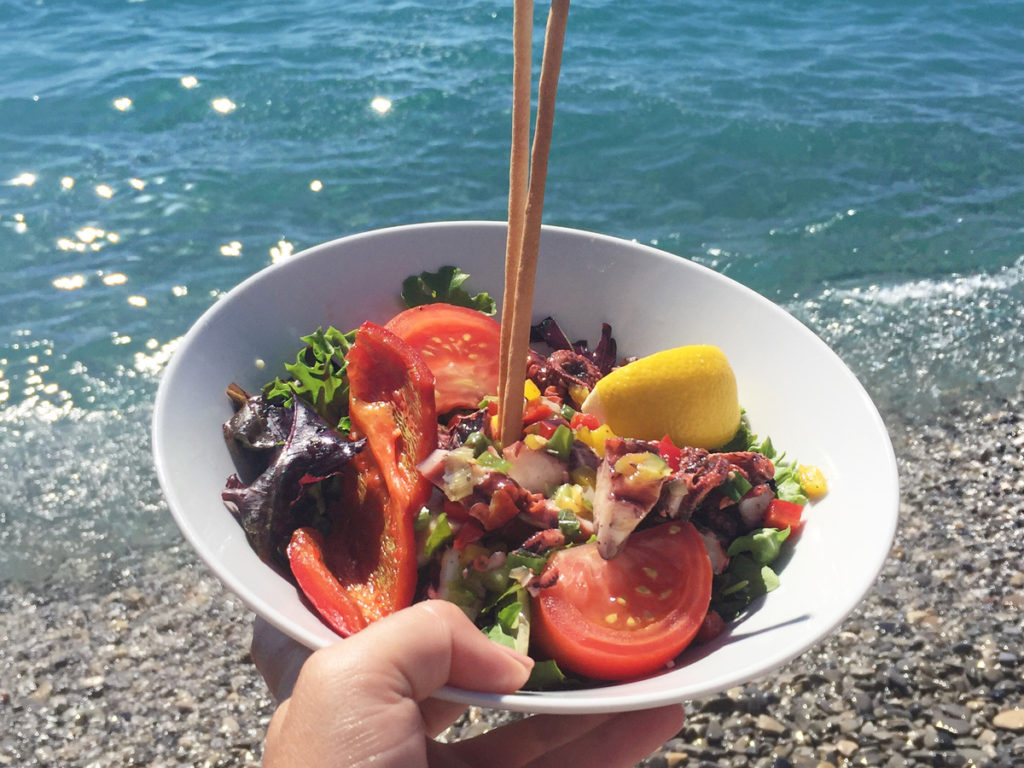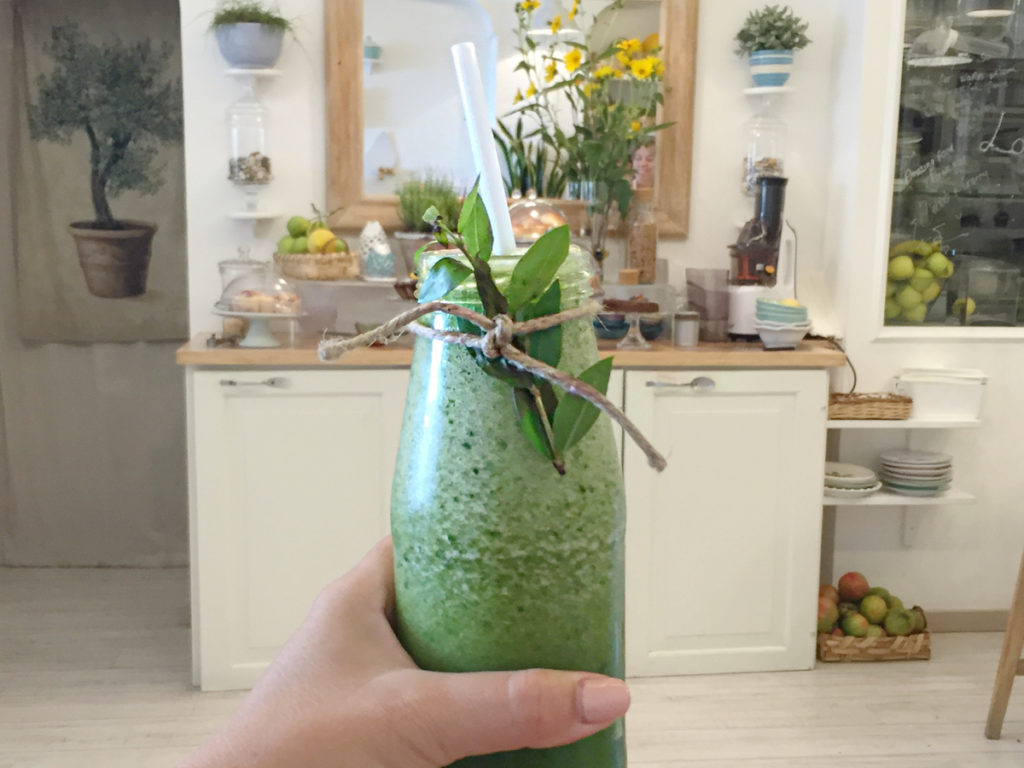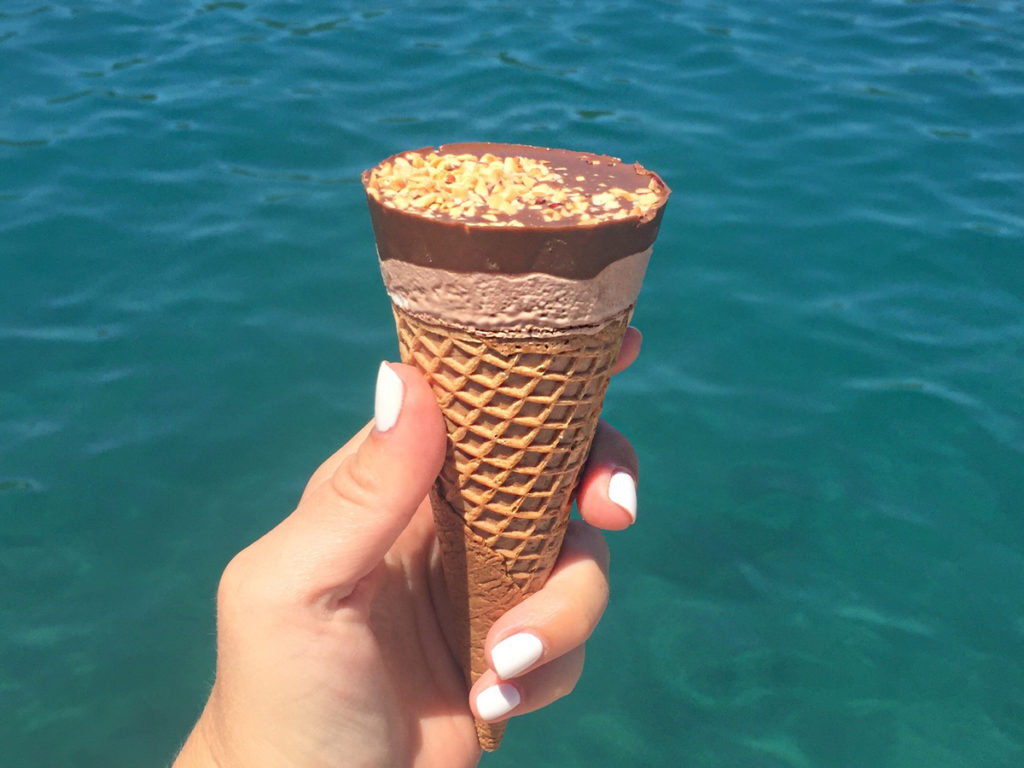Top 10 Nutritional Travelling Tips
September 14, 0206
Over the past couple of months, I’ve enlisted a nutritional expert to help me with my diet when I’m at home in London and also abroad. As I’m travelling most of the time, I needed some help with staying in shape year round when most of my normal health foods are not available. Giulietta, a nutritional therapist and health coach has helped me with my eating plans and has a wealth of knowledge when it comes to having a balanced life. I’ved asked her to share her top 10 tips for healthy travel so you can feel good too when you are on holiday.
Nutritional Travelling Tips by Giulietta
Whatever your travel plans, it is really important to look after yourself when you travel. After all, most of us embark on our holidays after a gruelling year of hard slog when our immune systems are at their lowest (hands up if you’ve ever come down with a bad cold on the first day of your holiday?) Read on if you’d like to make this a thing of the past….
LOOK AFTER YOUR GUT
No one wants to feel bloated, constipated or catch a tummy bug when they’re on holiday so the secret is to start looking after your gut well before you go away. This is why it is super important to replenish our guts with lots of lovely bacteria that are going to help us adapt to the local environment and boost our immune systems. I sometimes advise clients to take a multi-strain probiotic supplement a few weeks before starting their holiday as well as increasing their intake of fermented food and drinks such as kimchi, sauerkraut and fermented coconut water or kefir. The probiotic strain saccharmoyces boulardii has been shown to be very effective in helping with recovery from traveller’s diarrhoea so I always take an emergency pack of these in my suitcase just in case and believe you me, I have been very grateful for them on quite a few occasions!
KEEP THINGS MOVING
Start by making sure you eat plenty of fibre in the run up to your holiday, increase your intake of vegetables, nourishing grains like quinoa or millet and pulses like lentils and chickpeas (if you can tolerate them). A sprinkle of chia seeds into your morning smoothie or breakfast bowl is also a great way of upping your fibre intake. I always travel with my trusty bag of linseeds (also known as flaxseeds) which I can turn to if things aren’t going quite as smoothly as I’d like them to. Simply soak 1-2 tablespoons in 300ml water overnight and drink first thing in the morning, probably not the nicest tasting start to the day but your body will thank you for it.
BANISH AWAY NASTY BUGS
There are some fantastic anti-microbial herbs out there that are brilliant at protecting you from nasty tummy bugs and infections. Garlic, oregano oil, grapefruit seed extract (known as ‘Citricidal”) and olive leaf are all really useful herbs to take with you when travelling. My personal favourite is grapefruit seed extract as you can also use this to rinse fruit and veg you might buy in local markets. There are also some really interesting products out there such as BioCare’s Micro-Flora Guard that contain both probiotics and anti-microbial oils in them. These are particularly useful when you’re travelling further afield to countries where bacterial strains are very different to ours such as India or many African countries. One other very inexpensive and highly effective way of protecting yourself against tummy bugs is to try and get hold of some live natural yoghurt as soon as you arrive at your destination. Local yoghurt is always teeming with bacterial strains that have millennia of experience of dealing with the nastier tummy-bug-causing strains which makes this a super effective way of protecting yourself. Make sure the yoghurt is locally produced and avoid generic mass-produced brands if you can.
HYDRATE
This is usually the first thing that falls by the wayside when travelling as no one wants to keep on getting up to use the bathroom on long journeys. However, this is probably one of the most important bits of advice I would urge you to follow, particularly if travelling by plane. Plane air is heavily recirculated and laden with toxins (many planes are sprayed with pesticides before take off to prevent the spread of dangerous parasites) so you need to keep that water supply up to help you body flush out all these chemicals. Make sure you go well armed with your own supply of water as it is often difficult to get enough from just asking the cabin crew. Stock up in the departure lounge and aim to drink around 500ml per hour. If you’re lucky, the departure lounge might also have cartons of coconut water, in which case, take a few of these too to provide you with an electrolyte-rich alternative to plain water. Alternatively you could always pack a few sachets of dehydrated coconut water powder to add to your water (Big Tree Farms have a nice selection of powders). Adding a pinch of Himalayan or rock salt to your water is also a useful trick to up your electrolyte content. (See my Intelligent Hydration blog for further tips). Finally, be wary of consuming alcohol when flying – it always seems like a good idea at the time but do you really want to add more toxins to your body for your poor liver to deal with? After all, one of the secrets to smooth travel is a happy liver!
FASTING
There have been lots of articles and blogs written on how to deal wth jet lag (in fact Phoebe wrote a great blog on this not so long ago, check it out here). The latest bits of research suggest that fasting during your journey is one of the most effective ways of helping your body reset its internal clock fastest, simply eat normally up until you catch your plane, keep well hydrated during the flight and then try to eat a good meal 2-3 hours after landing. This may also be a useful way to get around the problem of plane food.
SUPPLEMENTS
So, what are my go-to supplements when travelling? Personally I always take a supply of magnesium with me – it helps resettle my sleep patterns and combats the stress caused by long journeys. The B-vitamins are also a firm favourite amongst nutritionists as they are really useful for supporting energy production and great for giving your immune system a much-needed boost. Some people also report that vitamin B1 can be really useful for preventing mosquito bites as it is thought that the smell given off by the body when breaking it down is a natural repellant. There is also quite a lot of research suggesting that a type of vitamin B3 called NADH is very useful in protecting against many of the psychological and physiological effects of travelling. I love Wild Nutrition’s Wild Traveller supplement for this as it contains all other necessary nutrients to support the function of NADH in the body.
TO PLANE FOOD OR NOT?
Plane food is a real challenge. My first bit of advice is to avoid it where possible (you may want to have a go at fasting to see how it impacts your body clock). If it’s a short flight, try going without or make your own salad beforehand (luckily we’re still allowed to take our own food through security!) Include some good quality protein and lots of veg. Longer haul flights are more problematic, but stocking up on snacks such as nuts and seeds and protein bars (beware of the really sugary versions, stick to brands such as Bounce or Pulsin that are a bit lower in sugar) is a useful way to keep your hunger at bay and reduce how much plane food you consume. And remember, if you paid attention to tip no 5 and you’re keeping yourself hydrated this should also help to keep your hunger at bay!
PROTECT YOURSELF FROM THE INSIDE OUT
Making sure you’re getting enough antioxidants in your diet is definitely the first port of call here, holidays can be a great time to increase your fruit and vegetable intake so make a real effort to try different types of fruit and veg every day (rinsing them first with your trusty grapefruit seed extract if needs be!) For the sun lovers amongst you you may want to consider supplementing with either pycnogenol, a very potent antioxidant that has been shown to reduce skin damage caused by sun exposure, or astaxanthin, another very strong antioxidant that is found in algae, prawns, lobster, crab and salmon and which is often described as ‘internal sunscreen’. Both should be taken at least a month before travelling.
SET INTENTIONS
This was a tip given to me by my mindfulness coach a while back and quite honestly it has never failed me whilst on holiday. Many people complain that one of the biggest problems with travelling is that it is very easy to undo all the good habits we have at home and as a result we return having gained weight or not being able to climb a flight of stairs without getting out of breath. Set aside a minute or two a day (preferably in the morning) to set your intentions for the day. For example, you may want to say to yourself “Today I’m going to focus on eating plenty of fresh vegetables with every meal”, or “Today I plan to walk for half an hour along the seafront.” It may sound simple but setting your intentions helps to give you a focus for the day and really makes you feel in control of the situation. (You are also more likely to take action if you spend a few moments acknowledging an intention to yourself at the start of the day).
AND FINALLY…. ENJOY THE MOMENT
How many times have you gone on holiday and ended up forgetting most of what you did because you were always thinking of what you were going to do next? This is particularly important when we think about holiday food and drink. If you’re going to order a big cocktail then sit back, relax and really enjoy it, savour every sip and take in everything that’s going on around you. The same goes for food. Chew every mouthful carefully; close your eyes and immerse yourself in the sensation of that delicious ice cream gently melting in your mouth. Chances are if you stop and really focus on enjoying all these sensations you are less likely to end up overeating or drinking excessively (and feeling terrible about it the following day!).
Happy travels!
Giulietta x
Giulietta is a Nutritionist and Health Coach based in Uxbridge specialising in helping women with hormone balancing, weight loss and personal health Programmes. You can visit her website Hormones in Harmony for more information.




